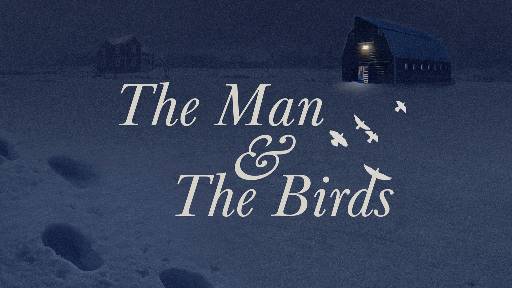-
1st Sunday After Epiphany, Year A. Series
Contributed by Christopher Holdsworth on Nov 20, 2025 (message contributor)
Summary: JANUARY 11th, 2026.
Isaiah 42:1-9, Psalm 29:1-11, Acts 10:34-43, Matthew 3:13-17
A). MANIFESTO OF THE SERVANT.
Isaiah 42:1-9 - First Servant Song.
After healing the multitudes, Jesus charged them that they should not make Him known (Matthew 12:15-17). According to Matthew 12:18-21, this was in fulfilment of the passage in Isaiah which we have just read. Thus the New Testament identifies the Servant in this song as Jesus.
“Behold my Servant,” says the LORD (Isaiah 42:1). This contrasts the Servant with the impotent idols of the previous verse (Isaiah 41:29; cf. Isaiah 42:8). It also sets this Servant above all other aspiring servants of God (including ourselves).
The Servant is “upheld” (by the Creator of heaven and earth - cf. Isaiah 42:5). This suggests the certainty that His mission to “bring justice to the nations” (Isaiah 42:1) will not fail. To that end, ‘All power’ has been given into Jesus’ hand (Matthew 28:18).
The LORD also introduces the Servant as “my chosen One in whom I delight: I have put my Spirit upon Him” (Isaiah 42:1). Jesus is the chosen One of God: and the Father is ‘well pleased’ with the Son (Matthew 3:17; Matthew 17:5).
‘The Spirit of the LORD shall rest upon Him,’ promised Isaiah 11:2-4. The Holy Spirit descended upon Jesus at His baptism (Matthew 3:16). This is how the “upholding” of the Servant takes place: by the sustaining power of God through the ministry of the Holy Spirit.
Thus also Jesus’ ministry was articulated with a reading of Isaiah 61:1-2, ‘the Spirit of the Lord is upon me.’
Jesus’ sermon on that text began: ‘This day is this Scripture fulfilled in your ears’ (Luke 4:21).
With this Spiritual endowment in mind, the LORD declares the success of the Servant’s mission: “He shall bring forth a just order for the Gentiles” (Isaiah 42:1).
“Justice” is a key word in the first part of our passage: recurring again in Isaiah 42:3, “In faithfulness He shall bring forth justice;” and Isaiah 42:4, “…until He has established justice in the earth”.
Yet the Servant comes first of all without show (Isaiah 42:2), pleading with people to keep the Messianic secret until the time is right (Matthew 17:9). Then there is a tenderness about Jesus’ ministry, as implied in the figurative language of Isaiah 42:3. And perhaps a big part of “bringing forth justice” (Isaiah 42:3) is in the Jubilee intimated in Isaiah 42:7 and Isaiah 61:1-2.
Parallel to “justice” is “law” (Isaiah 42:4). The prophet perceives distant lands waiting with longing for the Servant’s instructions.
The LORD now addresses the Servant, affirming His call: “I the LORD have called you in righteousness” (Isaiah 42:6). Again (as in the “upholding” of Isaiah 42:1), the LORD has taken Him in hand, and will “keep” Him.
The LORD continues: “I will make you to be a (mediator of the) covenant of the people, dispensing light to the nations” (Isaiah 42:6). "The people" appear as 'Israel' elsewhere (cf. Isaiah 49:6; Luke 2:32). Thus Israel is the olive tree, into which the Christian Church is grafted (Romans 11:24).
Finally, we have an authentication of the prophecy from the LORD Himself (Isaiah 42:9). The idols could not even tell what is about to happen: “the former things” (Isaiah 41:22) which have now come to pass. Now the LORD is declaring “new things” – and continues to do so right through the remainder of Isaiah’s book, culminating in the ‘new heavens and a new earth’ (Isaiah 65:17).
Not one word of the LORD will fall to the ground. All shall be fulfilled. ‘Blessed are all who wait for Him’ (Isaiah 30:18)!
B). THE SONG OF THE THUNDERSTORM.
Psalm 29:1-11 - “The voice of the LORD”.
1. The thunderstorm
Storm clouds gather over the Mediterranean. The thunder rolls inland over the cedars of Lebanon, and lightning strikes strip the cedars bare. Even the mountains of the North seem to be shaken to their very foundations. The storm turns, travelling the whole length of Israel, and seems to shake the wilderness. The sand cannot remain still, and anything loose is driven like tumbleweed across the plain. The red deer calves early, and all creation stands in awe at the might of the storm.
The claps of thunder are not the sound of the mighty Thor of Norse mythology, who was said to be riding his chariot across the sky. Nor are they the voice of the Canaanites’ storm god Baal, who allegedly dwelt ‘in’ the storm (and if he was not there, he was on vacation - or maybe sleeping - cf. 1 Kings 18:27). Nor is this the beginning of yet another disaster movie, but a metaphor of the awesome might of the LORD, who sits “above” the storms of life (Psalm 29:10).
Repetition drives the momentum of the storm in this song. This is not the ‘repeat, ad lib, and fade’ of popular music, but a powerful push towards peace. Three times the “sons of God” (Hebrew), the ‘mighty ones’ or ‘heavenly beings’ are called to give - or “ascribe” - glory to the LORD (Psalm 29:1-2). Seven times the thunder claps are identified with “the voice of the LORD” (Psalm 29:3-9). “The LORD” is named four times in the closing verses (Psalm 29:10-11), reminding us that the Psalm is not about the storm, but about the LORD who sits above the storm. Nothing is outside His power.

 Sermon Central
Sermon Central


